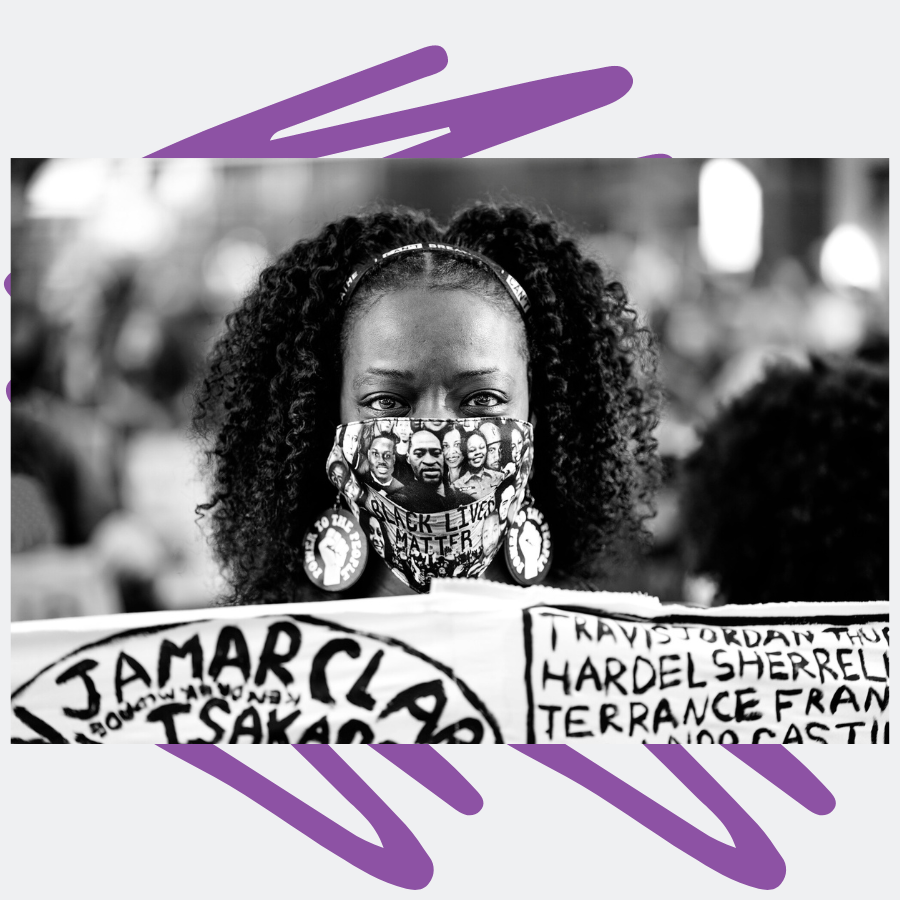Note: The Association for the Study of African American Life and History has made this year Black History Month’s theme Black Resistance, which analyzes how Black people have historically rallied against political and societal oppression. Also, this post may include affiliate links, which means we make a small commission on any sales. This commission helps Feminist Book Club pay our contributors, so thanks for supporting small, independent media!
In 2021, House speaker Kevin McCarthy evoked Martin Luther King Jr.’s name to denounce “Critical Race Theory” a term whose definition varies depending on what day it is or who you ask. To McCarthy and his ilk, CRT is anytime someone mentions how engrained racism is in society.
“Critical Race Theory goes against everything Martin Luther King Jr. taught us—to not judge others by the color of their skin. The Left is trying to take America backward,” he tweeted.
McCarthy was quickly met with pushback — including from King’s daughter, Bernice, who admonished the politician for simplifying her slain father’s message to a single line in his famous “I Have a Dream” speech.
Rep. McCarthy, I encourage you to study my father’s teachings & words well beyond the last lines of ‘I Have A Dream.’ This nation has yet to firmly commit to the intensive, multi-faceted work of eradicating racism against Black people. You should help with that. Please read this: pic.twitter.com/mhiLvvNdxM
— Be A King (@BerniceKing) July 13, 2021
Whether it’s in the aftermath of another extrajudicial murder of a Black person or expressing an overall frustration about existing in a Black body, responses that reflexively call for civility can feel especially patronizing and insincere because it often plays into respectability politics. Yes, King expressed optimism even in face of violent marginalization, but he was also radical in his beliefs. (Specifically in his anticapitalist views.) In fact, King’s last sermon was entitled “Why America May Go To Hell” — though he was assassinated three days before he could deliver it.
‘Respectability politics’ is the broad catch-all name given to the belief that if only a marginalized group (Black men and boys, say) behaved better in public and presented a better image to the outside world, their lot in life would improve.
Perception Institute
This revisionism is intentional. Respectability politics expects marginalization, oppression, and violence to be watered down in a manner that makes it palpable. It forces the oppressed to put on a mask to engage in discourse about their own existence.
Effectively, truth and calls for change will always be threatening to those who benefit from the status quo. It was never about the messenger or how they delivered their message.
The “Respectable Black”
Black people who make the cardinal mistake of being boisterous, unapologetic, and passionate are often dismissed as being loud, ghetto, and aggressive. Once again, respectability politics stifle conversations because it prioritizes behavior and appearance over the message.
Black people may internalize and subscribe to respectability politics in hopes of having their point heard by those outside their community. The latest wave of Black conservatives — Candace Owens, Hershel Walker, and Jesse Lee Peterson — come to mind. They are offered as counterexamples of Black people who don’t think and act the “same.”
True, Black people are not a monolith. But the aforementioned figures, who will go as far as deny racism exists, are uplifted at the collective’s expense. But it’s also very telling: It proves that there’s space for Black people and their opinions…only if it doesn’t offend certain sensibilities.
Black Resistance: What Comes Next?
At the onset of Black History Month, the state-sanctioned murder of Tyre Nichols monopolized the news. In addition to the depraved brutality surrounding his death, it’s worth highlighting Nichols’ criminal history (which he doesn’t appear to have) is absent from the mainstream discourse.
Nichols was still murdered. It didn’t matter how respectable, nonviolent, or nonthreatening he was. He. Was. Still. Killed. And his death had to be so senseless and inexcusable for some to recognize this.
In February and beyond, speaking truth to power is resistance. Respectability be damned.
Recommended Reads
Shifting: The Double Lives of Black Women in America by Charisse Jones and Kumea Shorter-Gooden
The Mother of Black Hollywood by Jenifer Lewis
Sister Outsider: Essays and Speeches by Audre Lorde
Why Are All the Black Kids Sitting Together in the Cafeteria? by Beverly Daniel Tatum


